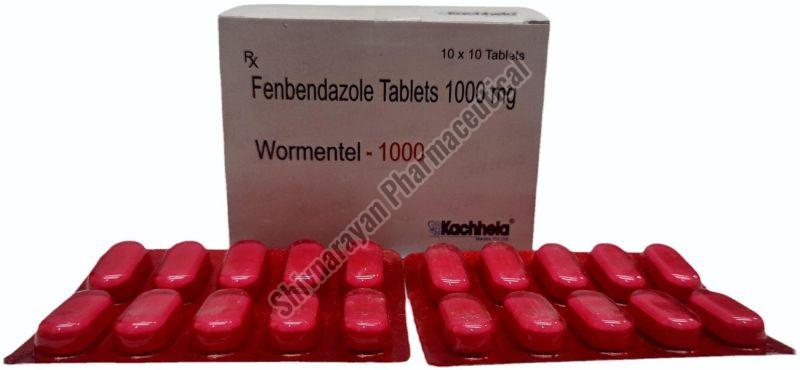fenbendazole capsules: Everything You Need to Know for Pet Owners
Wiki Article
Understanding the Benefits and Uses of Fenbendazole in Vet Medicine
Fenbendazole has developed itself as an essential anthelmintic in vet medication. Its capacity to target different parasitical infections makes it a beneficial tool for veterinarians. The medicine's device disrupts important mobile procedures in bloodsuckers, leading to effective therapy results. Its safety and security profile differs in between species, demanding careful consideration in its use (fenbendazole 444). Comprehending these characteristics can drop light on fenbendazole's wider ramifications in veterinary treatment and recurring study right into its potential beyond typical applicationsDevice of Activity of Fenbendazole

Common Parasitical Infections Treated With Fenbendazole
A variety of parasitical infections are properly treated with fenbendazole, making it a versatile choice in veterinary medicine. This anthelmintic agent is particularly reliable versus nematodes, including roundworms and hookworms, which frequently impact pets and cats. It is additionally used for the treatment of cestodes, such as tapeworms, supplying a broad spectrum of activity versus both sorts of digestive tract bloodsuckers. Furthermore, fenbendazole is advantageous in handling infections triggered by protozoa, specifically Giardia, which can bring about stomach distress in pets. Its efficacy includes treating specific lungworms in pooches and felines, addressing respiratory system wellness problems linked to these parasites. In general, fenbendazole's capability to target multiple parasitic types makes it a useful tool in veterinary practice, making sure the health and health of pets impacted by these typical infections.Safety and Efficacy in Different Pet Types
The safety and security and effectiveness of fenbendazole differ amongst various pet varieties, emphasizing the importance of species-specific factors to consider in vet medication. In dogs, fenbendazole is usually well-tolerated and effective versus a variety of intestinal bloodsuckers, including roundworms and hookworms. For felines, nevertheless, its usage is much less usual and might call for cautious application due to potential unfavorable reactions.In animals, such as cattle and sheep, fenbendazole shows efficiency against different endoparasites, adding to boosted health and productivity. However, the pharmacokinetics and possible side impacts can differ markedly in between species, requiring careful examination by vets.
Horses also respond positively to fenbendazole, specifically for treating strongyles and ascarids, though dosage and administration routes need to be customized to their one-of-a-kind physiology. Recognizing these differences is crucial for optimizing therapy results and guaranteeing pet welfare throughout diverse types.
Management and Dose Guidelines
Appropriate management and dose guidelines are vital for taking full advantage of the therapeutic impacts of fenbendazole while minimizing potential negative effects. The dosage commonly differs relying on the species being dealt with, the particular condition, and the solution of fenbendazole utilized. fenbendazole. For pets and felines, an usual dose is 50 mg/kg body weight, carried out as soon as daily for three successive days, yet veterinarians may adjust this based on specific health evaluationsIt is very important to carry out fenbendazole with food to boost absorption and minimize gastrointestinal upset. The medicine is offered in numerous kinds, consisting of granules and paste, permitting flexible administration options. Keeping an eye on the animal's action throughout and after therapy is suggested to confirm efficacy and security. In addition, veterinary assistance is crucial to establish the proper period of treatment based on the sort of parasitic infection being dealt with, guaranteeing perfect outcomes for the pet's wellness.
Future Point Of Views and Study on Fenbendazole
Research on fenbendazole proceeds to progress, concentrating on its Full Report potential applications beyond conventional antiparasitic uses. Recent research studies have actually discovered its performance in dealing with various forms of cancer, particularly in vet oncology. Preliminary information recommend that fenbendazole might inhibit the development of growth cells and boost the impacts of other chemotherapeutic representatives.In addition, researchers are exploring its function in handling food poisonings in animals, highlighting its anti-inflammatory homes. The adaptability of fenbendazole for different types increases concerns about its safety and security accounts and ideal application programs in varied populaces.
As rate of interest grows, there is a need for extensive clinical trials to develop evidence-based standards for these unique applications. Future research might likewise investigate the mechanisms behind fenbendazole's impacts, possibly leading the way for ingenious healing methods in vet medication. The ongoing expedition of important source fenbendazole can significantly boost treatment choices for numerous vet conditions.

Often Asked Concerns
Is Fenbendazole Safe for Pregnant Animals?
The safety and security of fenbendazole for pregnant pets remains unpredictable. While some research studies recommend very little risk, veterinarians commonly suggest care and typically suggest against its use while pregnant unless the benefits clearly surpass possible threats.Can Fenbendazole Be Utilized in Livestock?
Fenbendazole is generally used in livestock to treat different parasitical infections. 222 mg. Its effectiveness versus gastrointestinal worms makes it a beneficial anthelmintic, adding to improved health and wellness and performance in pets raised for food find more information and fiberWhat Are the Side Effects of Fenbendazole?

The negative effects of fenbendazole may include stomach disturbances, sleepiness, and allergic responses. In rare instances, a lot more serious responses could take place, necessitating careful surveillance and examination with a veterinarian throughout treatment.
How Does Fenbendazole Contrast to Other Dewormers?
Fenbendazole uses broad-spectrum efficacy versus different bloodsuckers, typically comparing positively to other dewormers. Its distinct system targets different life phases, making it effective, while typically offering a favorable security profile compared to alternatives offered on the marketplace.Can Fenbendazole Be Utilized for Dealing With Cancer Cells in Pet Dogs?
The possibility of fenbendazole in treating cancer cells in pet dogs has actually gathered rate of interest. Preliminary researches suggest it might inhibit cancer cells cell development, however even more research is essential to validate its efficacy and safety and security in veterinary oncology.Report this wiki page